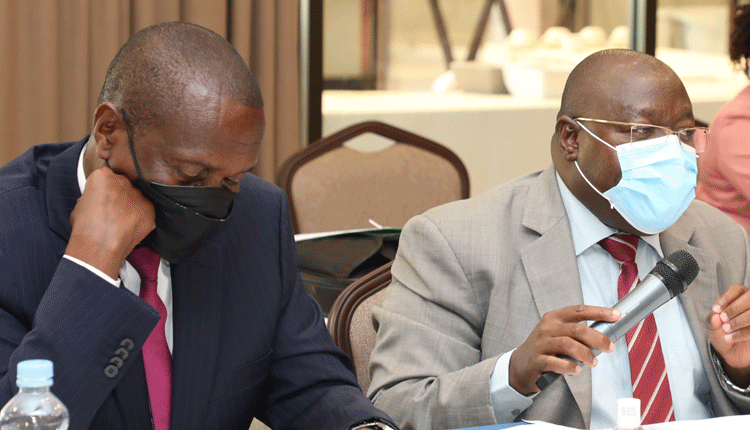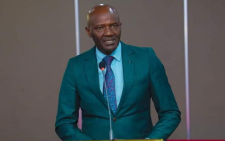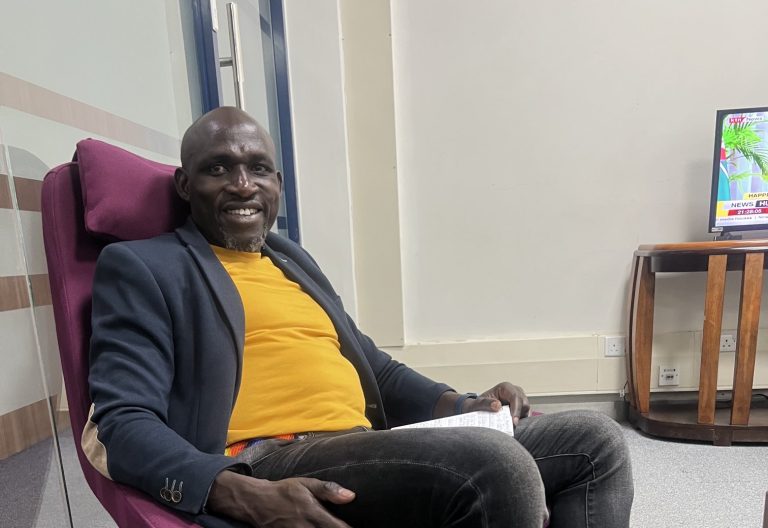Insurer’s contract with police is a scandal, says Deputy IG

Deputy Inspector General of Police Edward Mbugua yesterday said the National Hospital Insurance Fund contract with the police seems to have been a scam from its inception as its details were shrouded in secrecy.
“This was a scandal from the beginning. We have never been told why we moved from Pioneer Insurance to NHIF.
Every officer is deducted money with the lowest being Sh500 depending on rank. But the services they are getting from NHIF are very poor,” said Mbugua.
Mbugua, who is also a member of the National Police Service Commission, was speaking when he and other commissioners appeared before the National Assembly’s Committee on National Security and Administration.
The commission, which is chaired by Eliud Kinuthia, told the committee that more than 100,000 police officers were struggling to access quality healthcare because of a dispute in the contract with the NHIF.
NPSC said the national health insurer was giving police officers a raw deal by introducing a ceiling of not more than Sh2,500 per day for officers in the rank of Constable to Inspector whereas the negotiated deal was unlimited.
“NHIF is not approving requests for some procedures like MRI and in some cases they approve less amounts.
NHIF has negotiated with some facilities that those between job groups “A to L” cannot be attended to by a doctor but a clinician,” he said.
Mbugua said just getting approval for an officer seeking an MRI procedure may take two days irrespective of the emergency, adding that it was worse for an officer who requires an emergency procedure over the weekend.
Connection challenges
Further, most outpatient facilities the commission claimed, have a tendency of exploiting police officers or fraudulently raising claims.
The commission cited a case where a police officer reported that he visited a facility in Tana River for outpatient services five times without being treated yet NHIF processed Sh50,000 for inpatient services and when he complained to the insurer, he was threatened that they would make him pay Sh7,500 for outpatient service.
Kinuthia said officers working in regions with poor telephone network and internet connection experience challenges with the One Time Passwords (OTP), which are required to log into the NHIF system using their registered phone numbers.
He said that because of that reason, some officers were forced to pay hospital bills out of pocket because they cannot carry out NHIF transactions online.
The committee’s chair Peter Mwathi (Limuru) said there was need to address the many problems the officers were facing with their health cover.
“Police officers are going through a lot of agony. NHIF has not been able to disclose the contents of the contract on the comprehensive cover.
The officers are getting poor services. We will call NHIF to reveal details of the contract so that we are able to see its contents,” said Mwathi.
NPSC told the legislators that poor access to medical care had been identified as one of the causes of depression among officers.
Other causes of stress, according to the commission, include long working hours, stagnation in the same rank, poor working conditions, transfer and overstay of officers in operational areas, drug and substance abuse, work place harassment and sickness.











